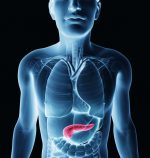Patients May Be at High Risk for Multiple Cancer Types: Meta-Analysis
Written by |

People with Sjögren’s syndrome may be at a higher risk of developing multiple types of cancer, according to a recent meta-analysis of several published studies.
The analysis confirms a previously identified link between Sjögren’s and a type of blood cancer called non-Hodgkin lymphoma. It also highlighted new relationships between the autoimmune disease and other cancers.
“We found that [Sjögren’s syndrome] was significantly associated with increased risks of overall malignancy, hematological malignancy (including [non-Hodgkin lymphoma], [multiple myeloma], leukemia) and solid tumors (including lung cancer, thyroid cancer, non-melanoma skin cancer, kidney or urinary tract cancer, liver cancer and prostate cancer),” the researchers wrote.
However, the scientists noted that large variations between the analyzed studies mean that readers should “interpret our finding[s] with caution.”
The study, “Primary Sjögren’s syndrome is associated with increased risk of malignancies besides lymphoma: A systematic review and meta-analysis,” was published in the journal Autoimmunity Reviews.
Sjögren’s is an autoimmune condition in which the body launches a misdirected immune attack on its own moisture-producing glands.
The disease is associated with an increased risk for some types of cancer, especially non-Hodgkin lymphoma, a type of blood cancer that starts in the lymphocytes — a group of white blood cells that mediate immune responses.
The risk to Sjögren’s patients of developing other types of cancer, however, is unclear, according to researchers. To further investigate potential links, a team in China now conducted a meta-analysis of 25 previously published studies relating to the two diseases.
Overall, the studies included some 47,607 Sjögren’s patients from 12 countries, namely the U.S., the U.K., Sweden, Denmark, Norway, Italy, Argentina, Finland, Scotland, Spain, Korea, and China. Patients with Sjögren’s secondary to another condition were excluded from the analyses; only those with primary Sjögren’s were included.
Results showed that Sjögren’s patients had a 2.17-times higher risk of developing cancer than the general population. This risk was even more substantial in patients from Europe or Asia. The risk also was higher among patients who were diagnosed with Sjögren’s using the American-European Consensus Group diagnostic criteria, from the Johns Hopkins Jerome L. Green Sjögren’s Center.
More specifically, Sjögren’s patients were at a higher risk for blood cancers, including non-Hodgkin lymphoma, Hodgkin-lymphoma, multiple myeloma, and leukemia.
The overall risk for cancer types affecting other organs, or those characterized by solid tumors, was not significantly different between patients and the general population, but some specific subtypes were more prevalent among those with Sjögren’s, the data showed.
Specifically, patients were at an increased risk for cancer of the mouth and throat, thyroid, skin (non-melanoma), liver, lung, prostate, kidney, and urinary tract.
Again, this risk was higher in patients from Europe or Asia, as well as those diagnosed using criteria from the International Classification of Diseases.
“This meta-analysis shows that [primary Sjögren’s] patients have increased overall cancer risk, which is not only contributed by [non-Hodgkin lymphoma], but also by other hematological malignancies [blood cancers] and solid tumors,” the researchers wrote.
They noted, however, that there was a significant amount of variability across the studies, and that their findings should be interpreted with caution.
Sjögren’s is characterized by two features that may influence cancer risk, the researchers said. The first is hyperactivity of a set of lymphocytes called B-cells, and the other is chronic inflammation in moisture-producing glands.
Over time, B-cells may build up inside tissues and promote inflammation, which together might lead to cancer in the affected organs, the team hypothesized.
The scientists said more research is needed to explain the mechanisms underlying the link between Sjögren’s and cancer.



